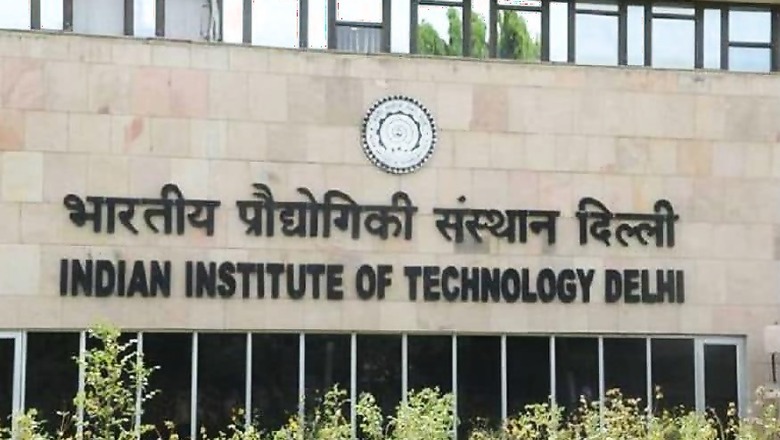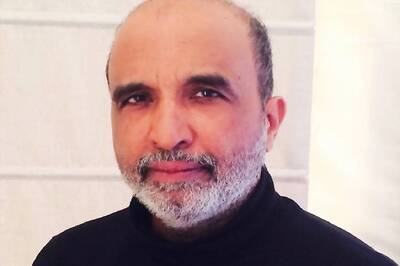
views
New Delhi: The Indian Institutes of Technology (IITs) have decided to increase the fee of MTech courses by up to 10 times (900%) to Rs 2 lakh per year. The hike will be introduced over a three-year period starting from the 2020 academic session.
All scholarships and fee waivers that were being given to BTech students, including economically backward candidates, will now be extended to MTech aspirants. The decision was taken at a meeting of the IIT council held on Friday.
Following severe criticism over the move, IIT-Delhi Director V Ramgopal Rao addressed the issue through a post in social media. Rao said the decision was taken by the council based on a committee report of which he was not a member.
Roy put out the following nine points in his Facebook page as reasons why he personally supported the fee hike decision.
‘Change’
Rao said many top universities in the world allow students to acquire a post-graduate degree along with their PhD programmes. The universities are looking at these options as revenue earners and charge a huge fee. Streams have also been modified and contemporised by bringing in courses on cyber security and artificial intelligence. This is how the masters’ programmes have changed all over the world in the last decade, he said.
‘Not a Route for Academicians’
The IIT-Delhi director said students who come for MTech programmes in IITs do not aspire to become academicians. Those who wish to become one, can directly register for a PhD. All IITs allow direct admission into PhD (with a high stipend and almost zero tuition fee) without MTech as a requirement, including the Prime Minister’s Research Fellowship (PMRF). Eventually, PhD students registered in IITs will be able to receive a masters’ degree once they complete certain credits. Even if it is not so today in some institutes, Roy expressed confidence that would become a norm eventually to make PhD admissions attractive.
‘Lack of Interest’
Roy further said that students who join M Tech programmes in IITs are doing so in search of jobs. IITs, therefore, need to align their M.Tech programmes according to the requirements of the market. Because of the government fellowship programmes, many institutions are running outdated post-graduate courses. In the current scenario, there is no strong motivation for anyone to change. Over 50% students take admission into MTech programmes quit as soon as they find a job. Among the remaining, many prepare for other competitive examinations and have no interest in what they are pursuing. This reveals that students value the jobs they get after their BTech more than the career they can build with their MTech degrees. The country’s precious resources (IIT seats and government funds) are wasted in such a scenario with no benefit to anyone. This is an alarming situation we have gotten ourselves into and obviously, a 'surgical strike' was needed, he said.
‘If MBA, then why not Mtech?’
If students are willing to pay Rs 20 lakh for an MBA degree at an Indian Institute of Management (IIM), they can surely pay Rs 4 lakh for a post-graduate degree in an IIT, Roy said. Nobody drops out of IIMs since they see a value in IIM’s MBA programmes. On the other hand, there are over 50% dropouts in IIT’s MTech programmes. As the IITs would now have to attract high-fee paying students, the institutes would also align themselves to market requirements and have a serious relook at the masters’ streams on offer. This would bring in accountability at all levels.
‘Revised Focus’
Roy said IITs will now focus on BTech and PhD programmes the way all research-intensive universities do worldwide. Masters programmes in IITs will train students for jobs and those who are interested in academics, will switch over to a PhD programme. Top GATE scorers will still be offered admissions into MTech programmes directly as teaching assistants and will be offered fee waivers and stipend. However, the offers will be linked to their role as teaching assistants. Others will get into these programmes paying a fee by taking loans, if needed. Since the programmes will get aligned with market requirements, they will be guaranteed a job and can repay the loans.
‘Fee concessions for needy’
The council resolution also says that all needy students will be given fee concessions and scholarships similar to BTech students. No eligible student in BTech programmes has ever been denied admission in IITs because of her/his poor financial background. There is no reason to believe that this will be any different for top GATE scorers seeking admission into MTech programmes, the IIT-Delhi director said.
‘Stop Freebie Culture’
The freebies that have been doled out with tax payers’ money to students who are uninterested and into systems which have become unaccountable needed to stop at some point. Roy urged people to not look at it from an individual's perspective but rather see it in the larger nation-building perspective. IITs are now taking loans from HEFA (Higher Education Financing Agency) for their infrastructure. IIT-Delhi needs to repay about Rs 580 crore to Canara Bank over the next 10 years. Same is the case with IIT Bombay and others. There is a great need to increase internal revenues, he said.
‘Quality move’
IITs need to produce a large number of high-quality PhD holders who can go out and build top-class institutions, get into entrepreneurship and build a research culture in industries. For that, we need to attract top GATE scorers into PhD programmes through full fellowships and scholarships. The limited funds that IITs have need to be diverted into these PhD programmes. MTech courses for a large number of GATE qualifiers need to be self-funded (with a guaranteed job at the end of the programme) or sponsored programmes by industries. IIT-Delhi has been successfully running for some time one such M Tech sponsored programme in VLSI, Roy said. Though the programme is entirely funded by semi-conductor industries, it attracts top GATE scorers.
‘Bringing Industry Closer’
Industries need to take ownership of MTech programmes in IITs in their own interest and not leave it to the government, Roy said. MTech courses have indeed played a significant role in building the nation by serving public sector units and private industries such as TI, Samsung, IBM, Intel, GE and Micron. It was time for these companies to start investing their funds in building these MTech programmes in IITs and also work with these institutions closely to make the courses relevant.
IIT-Madras has also issued a statement on the issue. "The fees for MTech programmes at IITs have not been revised for many years and are to be increased, particularly to deter students who discontinue the course mid-way. The increase in fees will be gradual, and only for future admissions, and will be decided by the BoG (Board of Governors) of each IIT. Scholarships given to reserved category students will continue as at present. The limited number of scholarships currently being given to meritorious MTech students will also continue,” the statement read.




















Comments
0 comment